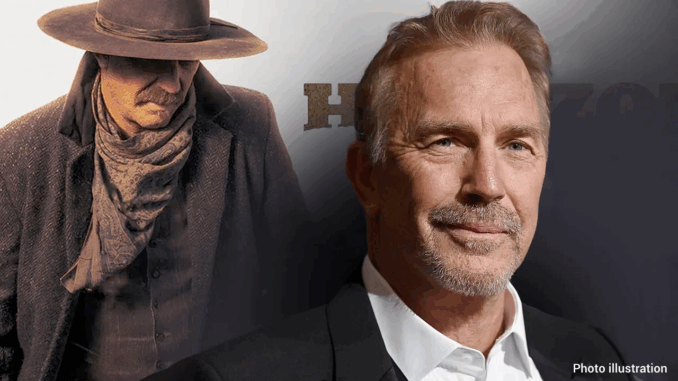
A Stunning Lawsuit Hits a Hollywood Legend
Kevin Costner, a celebrated actor and director, is facing serious legal trouble. A stuntwoman involved in the filming of Horizon: An American Saga – Chapter 2 has filed a lawsuit accusing him of orchestrating an unscripted and intimate scene that she claims was both inappropriate and non-consensual. The revelation has shocked fans and sent ripples through the entertainment industry.
Who Filed the Lawsuit and Why?
The Stuntwoman at the Center of the Controversy
Devyn LaBella, a professional stunt performer, says she was asked to perform a violent sexual assault scene with no warning. According to her, the scene wasn’t listed on the shooting schedule and was not previously rehearsed. She claims she was thrust into the moment without time to mentally or physically prepare, calling it a deeply traumatic experience.
The Scene That Sparked the Lawsuit
An Alleged “Surprise” on Set
LaBella states the incident happened during filming in May 2023. She alleges that a male actor, under Costner’s direction, suddenly performed a graphic and aggressive assault scene on her, lifting her skirt and simulating rape—without any prior approval or consent. She emphasizes that it wasn’t just unexpected, it was filmed in front of an open crew with no intimacy coordinator present.
No Intimacy Coordinator? That’s a Big Deal
Why Industry Rules Exist
Hollywood has strict guidelines when it comes to shooting scenes involving nudity or sexual content. There must be:
-
Advance notification
-
Full consent
-
An intimacy coordinator on set
-
A closed set to protect the performer’s privacy
According to LaBella, none of these basic protections were followed.
How the Actress Reacted
Immediate Discomfort, Lingering Pain
LaBella claims she felt “exposed, violated, and humiliated.” She reportedly filed formal complaints and is now pursuing legal action not just for damages, but to push for stronger protections on film sets.
What the Lawsuit Demands
LaBella’s legal team is asking for:
-
Financial compensation
-
Public acknowledgment from Costner and producers
-
Mandatory harassment training for the production team
-
Stricter enforcement of consent protocols for future projects
Kevin Costner’s Response
Denial From His Legal Team
Costner, through his attorney, denies all accusations. His team argues that the scene was consensual, rehearsed, and that LaBella even appeared upbeat and cooperative during and after the filming.
Calling It “A Shakedown”
His lawyer labeled the lawsuit as part of a “shakedown” attempt, claiming it’s an effort to unfairly exploit Costner’s fame and reputation for money and headlines.
Industry Experts Weigh In
Intimacy Coordinators Speak Out
Several industry professionals have voiced support for LaBella, noting that unplanned scenes like this are exactly why coordinators and protocols exist. They say this case could redefine how seriously Hollywood enforces those rules.
Why This Case Is Bigger Than One Film
Raising Questions About Consent and Power
This isn’t just about one movie. It’s about a power imbalance between directors and performers, particularly when actors are caught off-guard during emotionally and physically vulnerable scenes.
Hollywood’s Post-#MeToo Reckoning
Since the #MeToo movement, the industry has tried to clean up its act. This lawsuit is a harsh reminder that some sets still ignore clear boundaries—and that consequences should follow.
The Future of “Horizon: An American Saga”
Box Office Struggles and Legal Trouble
Even before this controversy, Costner’s ambitious Horizon project was facing financial challenges. The first film in the saga underperformed, and future installments are now in question.
Delays and Distribution Uncertainty
With lawsuits piling up and controversy swirling, it’s unclear when—or if—the remaining Horizon films will be released. Costner’s massive investment in the franchise may now be at risk.
Could This Change Hollywood Forever?
Rewriting the Rulebook
If LaBella wins this case, it could set a powerful precedent. Productions would likely face stricter inspections and new requirements to guarantee actor safety, particularly for high-risk scenes.
Potential for Union Crackdowns
Industry unions like SAG-AFTRA could strengthen enforcement or introduce new rules, especially for stunt doubles and performers in vulnerable situations.
The Human Cost Behind the Headlines
A Career Disrupted
LaBella says she’s been emotionally shaken and professionally impacted. What was supposed to be a prestigious job has now become a legal nightmare. She’s had to step away from work, enter therapy, and fight to reclaim her voice.
Where Things Stand Now
-
The case is pending in court
-
Costner denies wrongdoing
-
LaBella is pushing for policy change, not just a payout
Whether you believe one side or the other, this story is far from over—and the outcome could influence Hollywood for years to come.
Conclusion
Kevin Costner’s legal troubles shine a harsh light on the power dynamics behind the camera. Regardless of the court’s verdict, the conversation this lawsuit has sparked is long overdue. Actor safety, clear communication, and consent on set aren’t optional—they’re essential. As Hollywood moves forward, cases like this will define what “professional” really means behind the scenes.
FAQs
1. What exactly is Kevin Costner being accused of?
He’s being sued for allegedly directing an unplanned and non-consensual sex scene without proper safeguards, which the stuntwoman says violated her rights and industry protocols.
2. Did the actress give prior consent?
According to her, no. She states the scene was not disclosed in advance and lacked the necessary safety measures and approvals.
3. Is there an intimacy coordinator involved?
No. The scene was reportedly filmed without a qualified intimacy coordinator, which is against standard Hollywood practice for such content.
4. What does Kevin Costner’s team say?
They deny all accusations and claim the actress consented to the scene and was comfortable during the shoot.
5. How could this case affect Hollywood productions?
It may lead to stricter rules on set, increased enforcement of performer protections, and a bigger spotlight on behind-the-scenes accountability.
